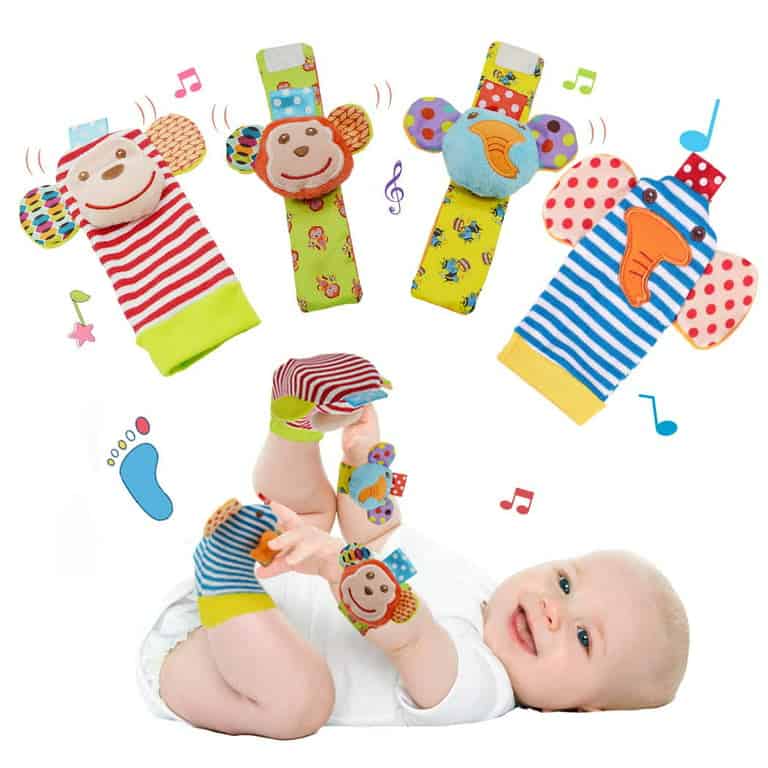Celebrating Half a Year of Joy: Your Baby at 6 Months
Hey there, amazing parents! Can you believe it’s been half a year since you’ve welcomed your little bundle of joy into the world? As much as it feels like they’ve been a part of your life forever, the 6-month mark is an exciting milestone filled with lots of new developments and adorable achievements. It’s a period where every day seems to bring something new, from babbling conversations to that oh-so-lovely first giggle. Let’s dive in and explore what you can expect from your 6-month-old and how you can support their growth with tons of love and enriching activities.
Understanding Your 6-Month-Old’s Milestones
At this delightful age, babies are growing and changing at lightning speeds. Here are some of the developmental milestones to look out for:
- Mastering the art of sitting up: Your cutie might now be sitting up with minimal support, exploring the world from a whole new angle!
- The joys of becoming vocal: Get ready for some adorable babbling as your little one discovers their voice and starts practicing sounds.
- Social butterfly in training: They love to engage with people and may start to recognize familiar faces, sometimes greeting them with a gorgeous smile or a wave.
- Exploring with their hands: Watch as they reach for and grip toys (and everything in sight) with increasing skill.
Remember, all babies are unique and develop at their own pace. If your little star isn’t quite hitting these markers just yet, there’s no need to worry. However, if you have concerns, it’s always best to chat with your pediatrician.
Activities to Support Development
It’s playtime, and the world is your (and your baby’s) oyster! Engaging in fun activities can boost their development and strengthen your bond. Here are some suggestions:
- Tummy time: Keep up with tummy time sessions to strengthen your munchkin’s neck, back, and arm muscles. It also prepares them for crawling adventures ahead!
- Storytime: Foster a love for books early by reading together. Those bright pictures? Great for their visual development—and the sound of your voice is just music to their ears!
- Sensory play: Introduce a variety of textures, sounds, and colors to stimulate their senses. Think soft fabrics, rattles, and colorful toys.
- Mirror games: Babies are fascinated by their own reflection. It’s a fantastic way for them to boost self-awareness and have some giggly fun!
Quality playtime isn’t just about development; it’s about creating joyful memories together. Cherish these moments!
Nutrition at 6 Months: Starting Solids
Ready, set, eat! Your little one may show signs they’re ready to start solids around this age. Look for cues like good head control, showing interest in what you’re eating, and the ability to push up from their tummy to sit with support. When they give you the green light, start with simple, single-ingredient foods like pureed fruits, veggies, and iron-fortified cereal. Always check with your pediatrician to create the best meal plan for your baby.
And let’s not forget about those darling first food faces—have your camera ready for some priceless expressions and a little bit of mess, of course!
Sleep Patterns: What to Expect
Sleep is a precious commodity in the parenting world, and by 6 months, you might see more of a routine with your baby’s sleep. Many can clock in about 14-15 hours of shut-eye per day, including naps. It’s an ideal time to encourage good sleep habits by establishing a calming bedtime routine. Gentle lullabies, a warm bath, or a soothing story can signal to your little star that it’s time to drift off to dreamland.
The journey with your 6-month-old is an adventure like no other. As they grow and discover new things every day, so will you. Embrace the changes, capture the memories, and most importantly, enjoy the ride—you’re doing an incredible job!
By the end of this guide, you will have gained a wealth of knowledge and tips to navigate the joys and challenges of parenting a 6-month-old with confidence and love.

5 Key Preparation Tips for Parents with a 6-Month-Old
As your little one grows, it’s important to be well-prepared for the changes ahead. Here are five essential tips:
- Childproofing your home: At six months, your baby is likely to become more mobile and curious. It’s time to baby-proof your home, securing cabinets, covering sockets, and making sure that small objects are out of reach to prevent choking hazards.
- Choosing the right toys: Invest in age-appropriate toys that promote development. Look for items that encourage problem-solving, fine motor skills, and sensory play. Always check for safety labels and avoid toys with small parts.
- Creating a feeding routine: As solids are introduced, establish a feeding routine that suits your baby’s needs. Pay attention to their hunger cues and be patient as they learn to eat. A good high chair and easy-to-clean bibs will be your best allies!
- Planning baby’s next health checkup: At six months, your baby will have a well-baby visit. Make sure to schedule their appointment and prepare any questions you have for your pediatrician, such as vaccination schedules and developmental milestones.
- Keeping a developmental diary: With so many milestones to look forward to, consider starting a diary or an app to track your baby’s progress. Jot down notes about their first words, how they respond to games, and their reactions to new foods.
Preparation and flexibility will guide you through this incredible stage as your baby discovers the world around them. And while you’re supporting their growth, they’ll be teaching you a thing or two about the beauty of life’s little wonders.
Essential Safety Measures for a 6-Month-Old
Safety is paramount when it comes to your growing baby. Be vigilant about potential dangers and educate yourselves on how to prevent accidents. Here are some tips to ensure your baby’s environment is as safe as can be:
- Review sleeping arrangements: Make sure your baby’s crib is free from loose bedding and toys to reduce the risk of SIDS. Ensure that the crib mattress fits snugly and the crib bars are the correct distance apart.
- Monitor baby’s surroundings: Always supervise your baby, especially during playtime and around water, even if it’s just a small amount.
- Stay up-to-date on product recalls: Keep an eye out for recalls on baby products and equipment by checking reputable sources and signing up for alerts from consumer safety organizations.
- Practice safe feeding: When introducing new foods, do so one at a time to monitor for allergies. Also, be sure your baby is always seated and strapped into their high chair during mealtime.
- Learn basic first aid: Consider taking a pediatric first aid course so that you’re prepared in case of choking or other emergencies.
Encouraging Communication with Your 6-Month-Old
Language development is blossoming at this age, and there are many ways you can encourage your little one to communicate:
- Talk to your baby: Narrate your day, describe objects and activities, and use a variety of words. Your voice is their favorite sound in the world!
- Respond to their babbles: When your baby babbles, respond back. This back-and-forth conversation teaches them the basics of communication.
- Use simple sign language: You can start teaching simple signs like “more,” “all done,” or “milk.” Babies can often use signs before they can speak, which helps reduce frustration.
- Play ‘copycat’ games: Make a sound or facial expression and encourage your baby to imitate you. This can develop into a fun game that also enhances their speech and social skills.
- Introduce music: Sing songs and play musical games. Infants love rhythm and rhyme, and these elements can be very beneficial for language development.
Instilling Early Values and Routines
It’s never too early to start setting the stage for positive values and routines. Here’s how to create a foundation for good habits:
- Consistency is key: Babies thrive on routine. By being consistent with sleep times, meal times, and playtimes, you help your child feel secure and understand the world around them.
- Show kindness and empathy: Treat others with kindness in front of your baby. They might not understand the words yet, but your actions are already teaching them valuable lessons about empathy and love.
- Encourage sharing and interaction: Even though your baby is still young, you can encourage them to share their toys with you during play. This early concept of sharing can set the stage for future social interactions.
- Establish healthy habits: Good habits start now. Keep your baby active, limit screen time, and ensure they have a variety of nutritious foods as they begin exploring solids.
- Be an example: Remember, your baby is always watching. Be the person you’d like them to become—whether that’s being punctual, polite, or patient.
Your precious 6-month-old is a sponge, soaking up every little thing you do and say. It’s a beautiful responsibility, one that you’re more than equipped to handle with your boundless love and thoughtful care.
See more great Things to Do with Kids in New Zealand here. For more information see here
Disclaimer
The articles available via our website provide general information only and we strongly urge readers to exercise caution and conduct their own thorough research and fact-checking. The information presented should not be taken as absolute truth, and, to the maximum extent permitted by law, we will not be held liable for any inaccuracies or errors in the content. It is essential for individuals to independently verify and validate the information before making any decisions or taking any actions based on the articles.




